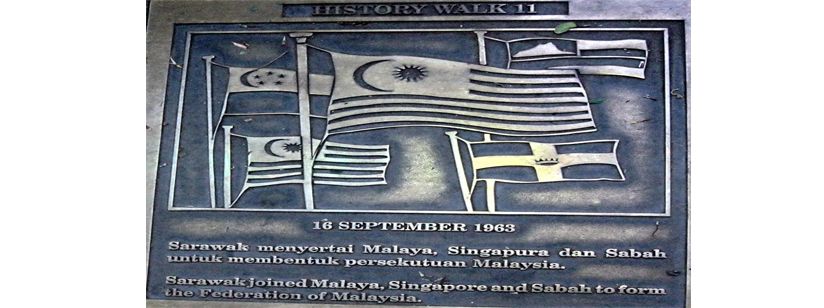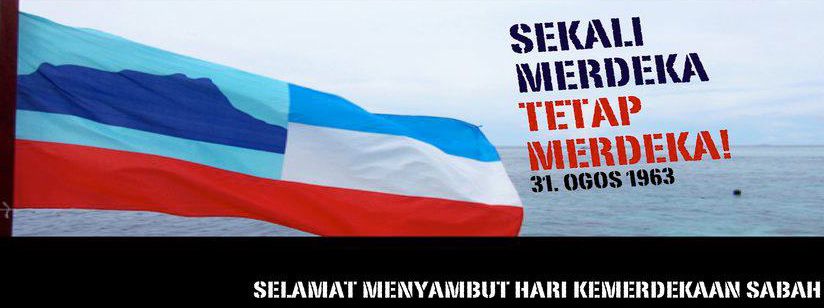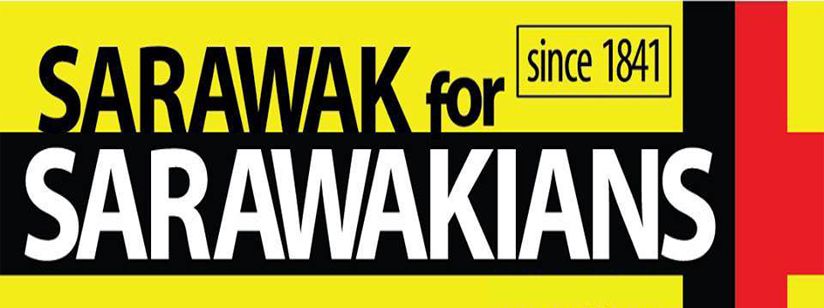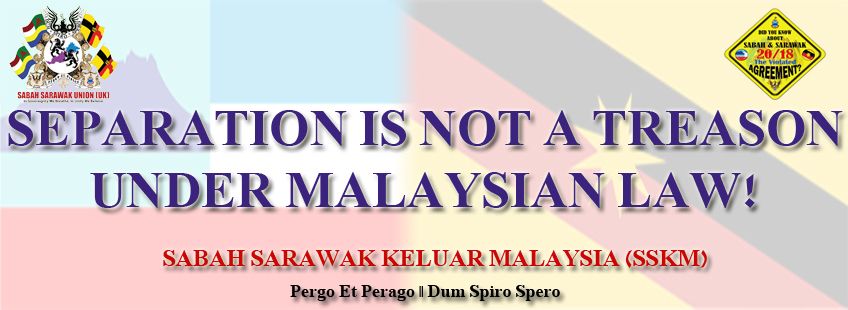Friday, 25 September 2015
Harris: M’sia Agreement 1963 not ‘legally’ binding
Putrajaya should tell the truth and not jump every time the Opposition says Bang! Bang! with an imaginary pistol.
KOTA KINABALU: Former Sabah Chief Minister Harris Salleh, responding to recent statements by several experts, feels compelled to address the basis on which Sabah and Sarawak came together with Malaya and Singapore in a Federation in 1963.
“It’s high time that the Federal Government told the people of Sabah the truth,” said Harris who was Chief Minister from 1976 to 1985. “The 20 Points (18 Points in Sarawak), Malaysia Agreement 1963 (MA63), the Inter Governmental Committee Report (IGC) and Batu Sumpah (Oath Stone) are all not legally binding.”
The contents of these documents, he added, have been incorporated in the Federal Constitution and the state constitutions. “It’s high time to speak the truth.”
“If the Federal Government does not speak to the people straight and honestly, the Opposition will continue to claim that it has been in breach of these documents. They would continue to claim that Putrajaya has been in non-compliance on MA63.”
He was commenting on de facto Law Minister Nancy Shukri saying that both MA63 and the IGC Report were still valid. “She’s also falling into the Opposition’s trap.”
“I was surprised to read her statement that both documents were still legally binding.”
DAP leaders in Sabah, he continued, are also harping on Batu Sumpah.
Harris lamented that the Federal Government was on the defensive in Sabah and Sarawak on the issue of Borneo rights. “The Opposition’s weapons in the two Borneo states are nothing but imaginary ones and Putrajaya has fallen into their trap.”
“The Federal Government should not get carried away and jump every time the Opposition draw their imaginary pistols and say Bang! Bang!”
The former Chief Minister conceded that the Opposition was capitalising on good issues, “but to promote ignorance in the rural areas”, and argued that he felt duty-bound to stress that the Federal Constitution was the Supreme Law of the Land. “We don’t have to refer to these other documents,” he said. “For example, if we want to import belacan from Brunei into the state, do we have to refer to the 20 Points?”
“It’s crystal clear that Parliament is sovereign and not any other document or body championed by the Opposition.”
Harris appeared to gloss over the fact that the 20 Points was not about imports or related issues but sets out, together with other constitutional documents and the Federal Constitution and state constitutions, the relationships, the nature of relationships, and the governing institutions of state.
Nancy, in her statement, said that she wanted to see evidence on non-compliance before taking up the matter with the Federal Government. She added that she was entrusted with the task which comes under her portfolio. “This matter should be brought to the attention of Parliament rather than the Court.”
Source: Free Malaysia Today
“Transfer of Management is Not Autonomy – Dr. Jeffrey”
KOTA KINABALU: “The Sabah Committee to study the devolution of power from the federal government should be bipartisan and should appreciate the difference that transfer of management or devolution of power, while helpful in terms of efficiency, is NOT autonomy per se...but merely a delegation of powers. Real autonomy will be reflected in the Federal and state constitutions as well as in the allocation of legislative powers under the State, Federal and Concurrent Lists” said Datuk Dr. Jeffrey Kitingan, in response to CM Musa’s announcement that the Cabinet has agreed to set up the Committee to be headed by the State Secretary and made up of top government officials.
There appears to be a general feeling of hide and seek being played by the federal government and the Sabah leaders on the return of autonomy to Sabah.
CM Adenan of Sarawak has made it clear that Sarawak is seeking the return of its autonomy as Sarawak formed Malaysia with Malaya and that Sarawak and Sabah and were different from the 11 States in Malaya.
Sarawak’s recent announcement of the Chinese school UEC which is equivalent to the national school SPM is a case of exercise of autonomy in education by Sarawak.
PM Najib’s response to Adenan’s request for return of autonomy is couched in vague terms of devolution of federal power while Sabah leaders appear to be talking about management and administration of federal projects so that they are better and more efficiently managed.
The restoration of full autonomy for Sabah and Sarawak long sought by the Borneo nationalists and activists has reached a critical stage after years of unanswered demands with recent moves for such restoration.
Therefore, it is imperative that the Sabah Committee should be bipartisan and comprise representatives of all stakeholders including the opposition and civil society. The need for such bipartisan support is more so given that the Umno-led Sabah government do not enjoy the confidence of large segments of civil society in Sabah to safeguard Sabah rights and autonomy.
Previous denials by Sabah government leaders including from Barisan components on Sabah’s autonomy rights have added to the suspicions that these leaders do not have the guts to stand up for Sabah rights and cannot be trusted in negotiations with the Umno-led federal government.
The Committee should also be clear that it is ultimately full autonomy and not project administrative management that is to be returned to Sabah and certainly not half-measures to hoodwink the people.
The details of the transfer of the autonomy as prepared by the Sabah Committee should then be tabled for debate and endorsement by the State Legislative Assembly before being presented to the federal government for implementation and transfer of the autonomy. Where necessary, amendments of the law and the Federal Constitution should also be passed and adopted.
Project management with ultimate power and authority still retained by Putrajaya is not transfer of autonomy back to Sabah. For instance, building of schools and roads being decided in Putrajaya and federal ministries with implementation to be handed over to the Sabah government is transfer of management and not transfer of autonomy.
If it is to be transfer of autonomy, there is no need for a federal JKR or federal education department to be in Sabah. All the federal government is to hand over the financial allocations to the Sabah government and let the government and its departments and agencies including JKR Sabah to handle the projects from A-Z including which school, which road, and all the necessary details down to the nitty-gritty.
The federal government can retain audit and oversight to ensure that there is no corruption, abuse of funds or power, mismanagement and wrongdoings. If there is any wrongdoing, then the full brunt of the law should be imposed on the culprits in Sabah right down from the Sabah government and its leaders.
Datuk Dr. Jeffrey Kitingan
Chairman
STAR Sabah
25 September, 2015
Source: STAR Sabah



























































